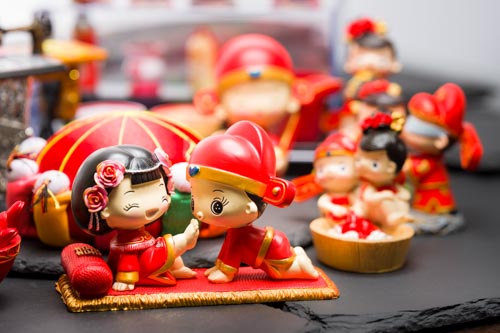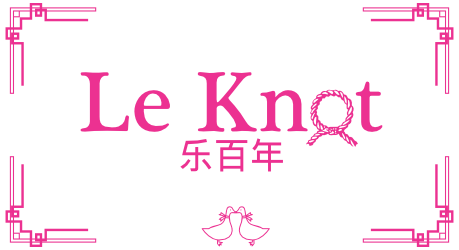
Chinese Wedding Tradition
The traditional wedding rituals undertaken by the Chinese has been practiced since the Qin Dynasty (221 – 206 BC). Aimed as an elaborate process by the groom’s family to search for an ideal bride for the family, it is particularly complex for wealthy households and yet also essential for poor households.
These traditional Chinese wedding rituals are known as the Three Letters, Six Etiquettes (三书六礼), and amongst the wealthy, they will seek a bride of comparable social standing who can manage the family finances, and most importantly, bear sons to carry on the lineage. While amongst the poor, the bride must be willing to labour hard in the fields, and bear sons to also support the farming activities.

The Three Letters, Six Etiquettes (三书六礼) consist of:
Three Letters (三书)
- Request Letter – a formal letter confirming the arrangement of marriage.
- Gifts Letter – a list recording the value of gifts sent to the bride’s family.
- Wedding Letter – a letter presented to the bride’s family on the day of the wedding to confirm the act of bringing the bride into the groom’s family.

Six Etiquettes (六礼)
Request for Marrying the Bride (提亲) – the groom’s parents will employ a matchmaker to present gifts to the potential bride’s family to sound them out, and persuade their interest.
Request for the Birth Dates of the Bride and Groom (合对八字) – if the bride and her parents are agreeable, the groom’s parents will request for her ‘Eight Letters of Birth Time’ (生辰八字), which will in turn be checked with a fortune master to calculate their compatibility. Only if the match is found to be compatible, will the proceedings be carried on, otherwise the groom’s family will continue searching for a compatible match, and no further contact will be established.
Bride Price (Betrothal Gifts) – gifts in monetary, furniture, or even estate terms are arranged for the matchmaker to present to the bride’s family, including the Gift Letter.
Formal Gifts for the Bride’s Family (过大礼/下娉/纳彩) – the traditional purpose of these gifts is to show the sincerity of the two families and a promise to take good care of the bride. It is a way of showing respect and gratitude to the parents. And the differing traditional items symbolise meanings such as ‘wealth’, ‘abundance of descendants’, ‘sweet and loving marriage’, ‘a good shelter’ and many more.
Selection of an Auspicious Wedding Date (择吉日) – an auspicious time and date will be selected by a fortune telling master according to the bride and groom, and their families’ birth dates.
Wedding Ceremony – The final big day, where a whole array of activities flood the couple and their families. Preluding the Banquet (喜酒) will be the Wedding Ceremony which includes the wedding procession, welcoming the bride, and religious rituals.

